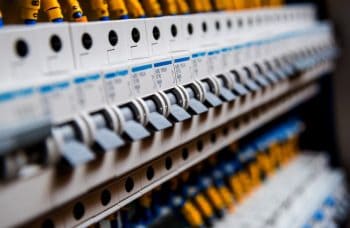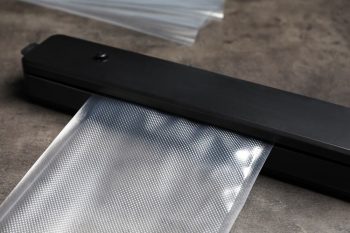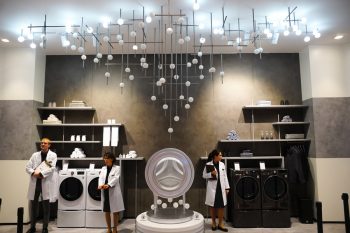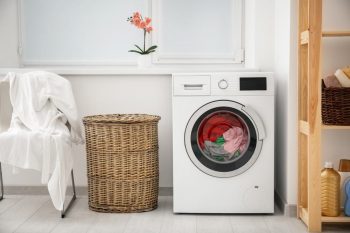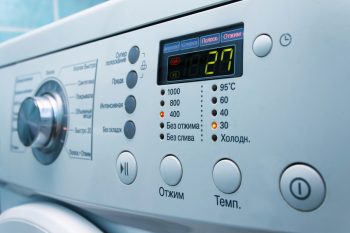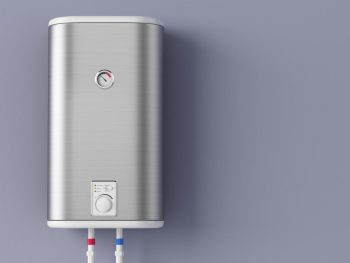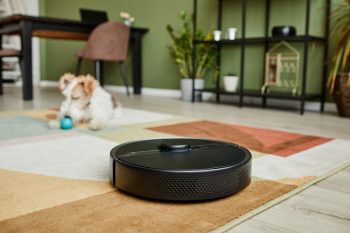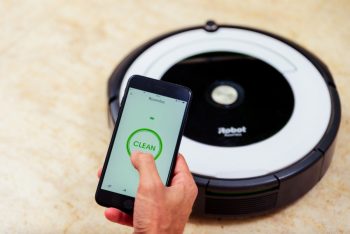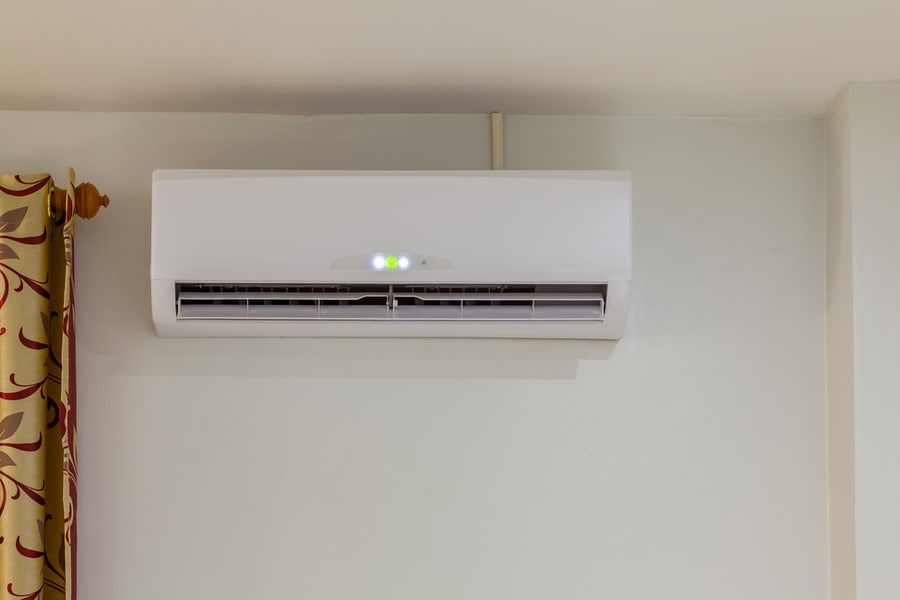
Are you worried your house is too humid even after the air conditioner turns on?
Air conditioners are excellent for keeping your house comfortable during those warm summer days. They keep your rooms cool and improve air quality.
Many people rely on aircon units to regulate humidity around the house. However, you might still notice that your appliance is running, but the room still feels muggy and damp. Though the issue might be worrying, it is a common occurrence that is easy to fix.
This article will examine why your AC has trouble removing excess moisture around the house and how to solve the issue.
If your AC has a problem dehumidifying a room, it might be an issue with the mode settings, dirty air filters, high humidity outside, or frozen evaporator coils.
Furthermore, an improperly sized air conditioner, thermostat trouble, or an old air conditioner might reduce the unit’s dehumidifying abilities.
If you are worried about a performance issue with your air conditioner, your best bet is to call an HVAC professional for help.
How Do ACs Dehumidify the House?
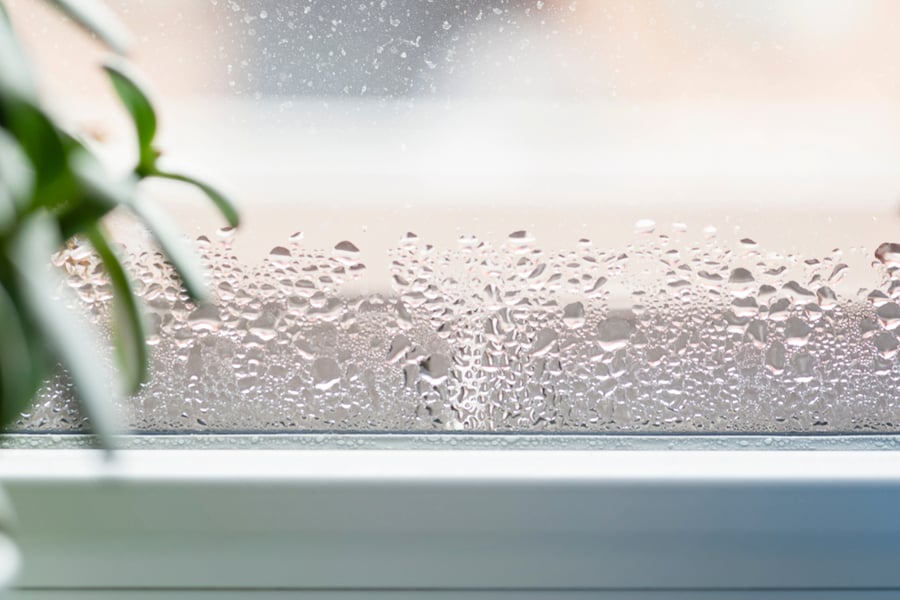
Did you know that your air conditioner also doubles as a dehumidifying device? The unit is responsible for adjusting the temperature around the house and removing any excess moisture in the air.
During the cooling process, your indoor unit pulls in air and pushes it toward the evaporator coils. Refrigerant in the evaporator coils removes heat from the air, cooling it down. In the process, moisture in the air also gets cooled and condenses on coils, forming water droplets.
The droplets then trickle down into a condensate pan for collection. When the pan fills up, the water is drained into a condensate pipe that disposes of the water safely outside the house.
Dehumidification is an important feature of your HVAC. This is extremely useful in a humid climate as it can prevent mold growth around the house, triggering severe allergic reactions and other health-related issues.
7 Reasons Why Your House Has High Humidity While the AC Is Running
There are several reasons why your AC might be having trouble removing humidity from the house. Though it might be an issue with the HVAC’s performance, it can also be caused by some external factors.
Let us look at some common reasons for the problem and how to address them.
1. Using the Wrong AC Mode
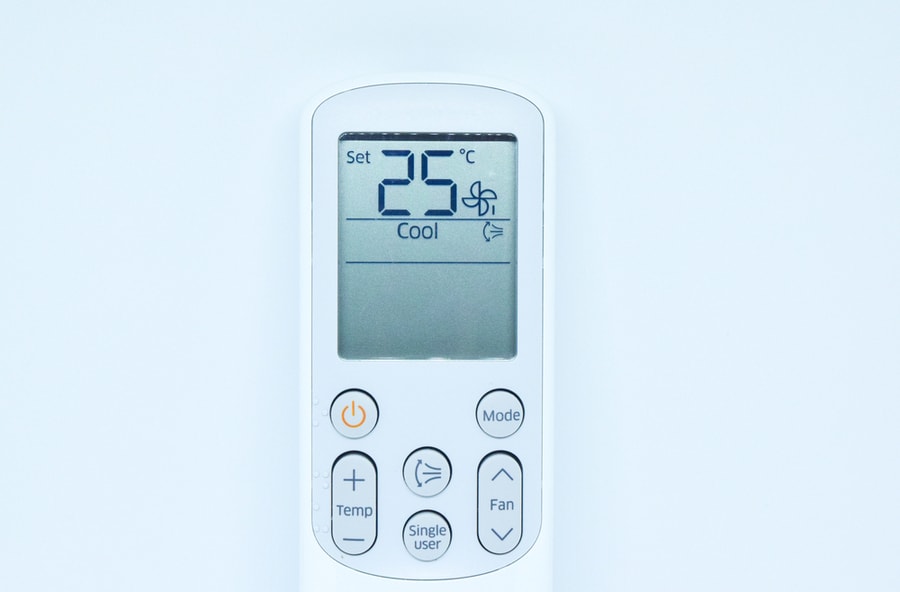
The first thing you should do is check if your AC has been set to the right settings. One of the most common culprits is that the unit is not set to Cool Mode or Dry Mode. Both modes are ideal for keeping the room air-dry and fresh.
However, no dehumidification will occur if your split air conditioner is set to Fan Mode. The evaporator fan is left running in this mode, but the unit’s compressor is turned off.
The air is not cooled enough to remove moisture without the compressor pumping refrigerant to the evaporator coils.
Changing the settings to either Cool Mode or Dry Mode should get the unit dehumidifying again.
2. Dirty Air Filters
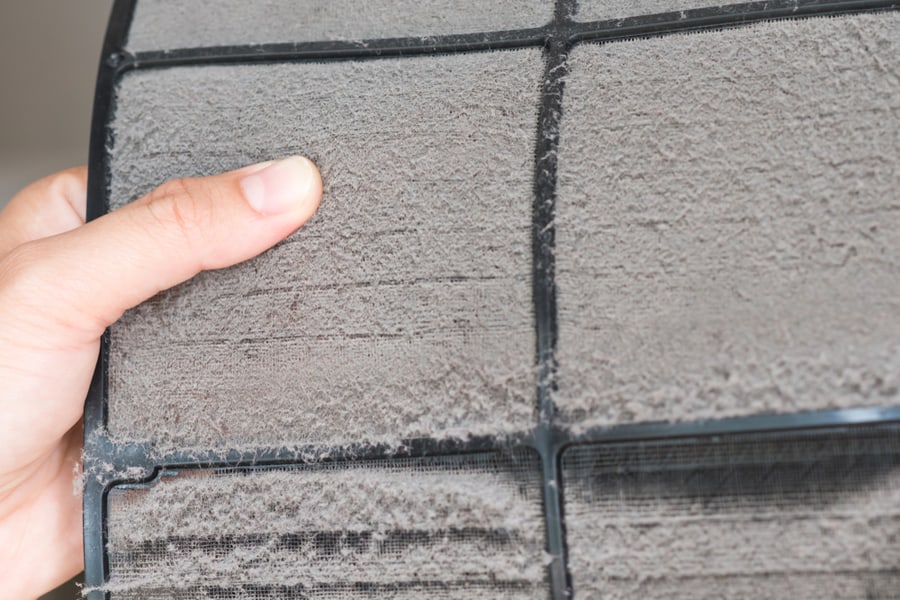
Secondly, dirty air filters might also be causing the dehumidification issue. The air conditioner’s filters prevent dust, dirt, pollen, and debris from getting to the evaporator coils.
However, if the air filters in your unit get clogged, it can affect air circulation to the evaporator coils. This results in a reduction in your air conditioner’s ability to dehumidify the room.
How To Clean Clogged Air Filters
If you have a problem with dirty air filters, cleaning them should ensure your aircon unit starts dehumidifying again.
You must turn off your split AC and remove its front panel. This should give you access to the air filters, which you should gently remove.
Cleaning the filter is a pretty simple job. All you need is some warm detergent water to remove dirt and debris. Additionally, you can use a vacuum cleaner to suck up the gunk.
We recommend replacing your AC filters after every 3-4 months. However, if you notice that your air filters are damaged, you should replace them immediately.
3. High Humidity Levels Outside
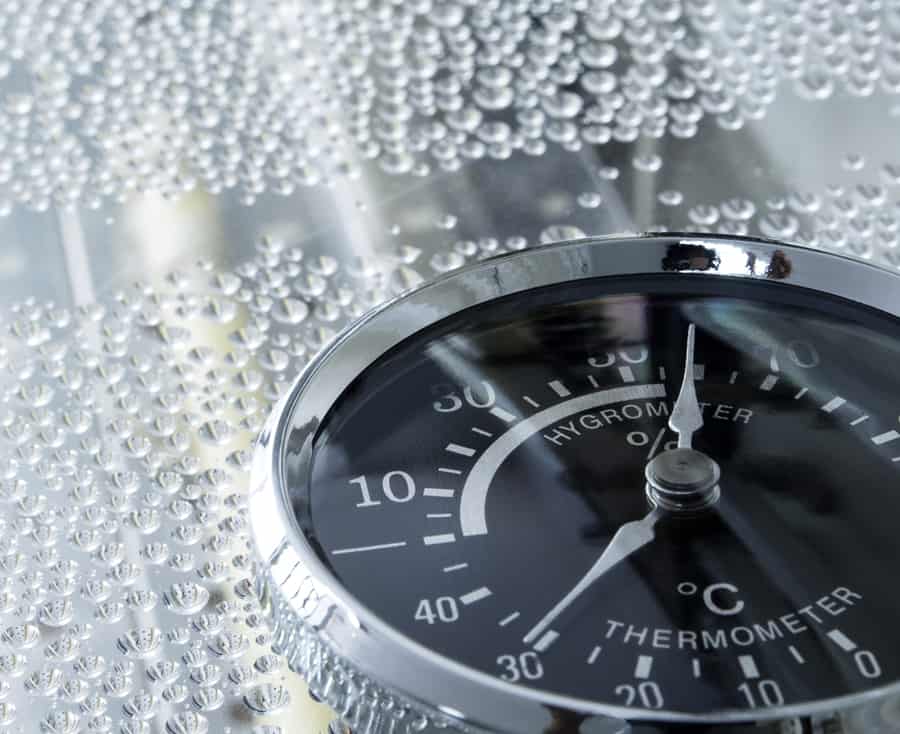
Furthermore, the moisture content in your area can also affect how the air conditioner dehumidifies the room.
Even if your air conditioner is running, high humidity outside can increase the amount of moisture getting indoors. This often occurs on hot, rainy days or after a thunderstorm, leading to that uncomfortable sticky feeling.
Dehumidifying on High Humidity Days
If you live in an area with high humidity, your best option is to get an HVAC professional to help. They can advise you on the appropriate temperature settings around the house without overworking the unit.
In addition, they can also offer advice on how to ensure your device works efficiently, reducing power consumption.
Furthermore, you can also get a ceiling fan to help improve air circulation in the room. Though the ceiling fan does not cool the air, by pushing air around the room, cool and dry air is easily spread throughout the room, reducing that damp smell.
4. Frozen Evaporator Coils
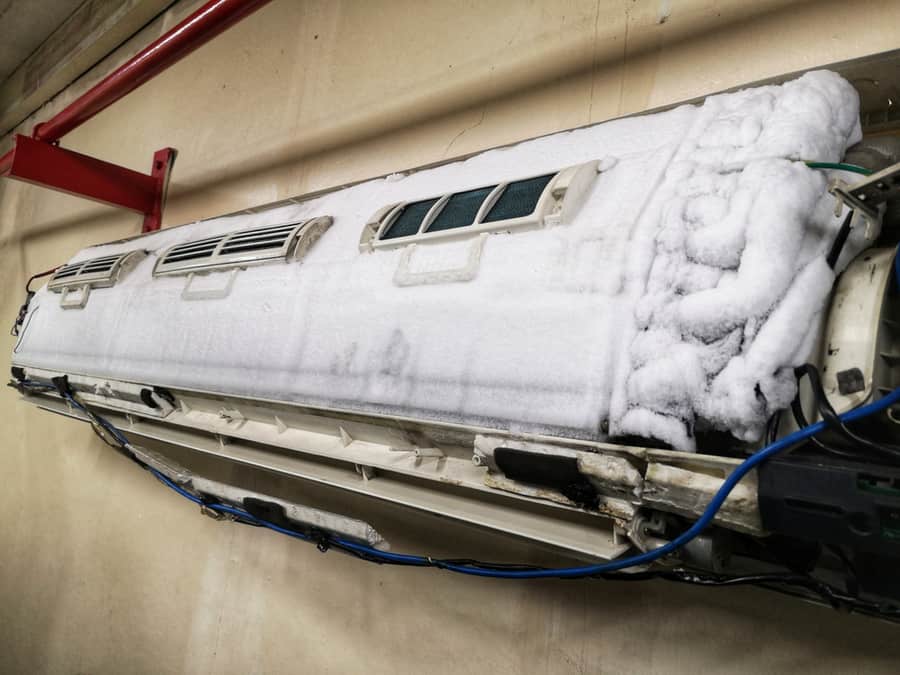
Frozen evaporator coils can also cause air conditioner problems. The coils are responsible for cooling the air in the appliance. They are caused by poor air circulation to the evaporator.
When ice and frost start building up on the coils, it prevents the refrigerant from absorbing heat from the room air. In the process, moisture will not be removed, making the rooms feel damp and muggy.
How To Fix Frozen Evaporator Coils
There are multiple reasons for the frozen evaporator coils. Your best option is to turn off the unit and let it defrost.
Afterward, you should call a repair expert to inspect the unit and find the reason for the coils freezing.
5. Improper Sizing
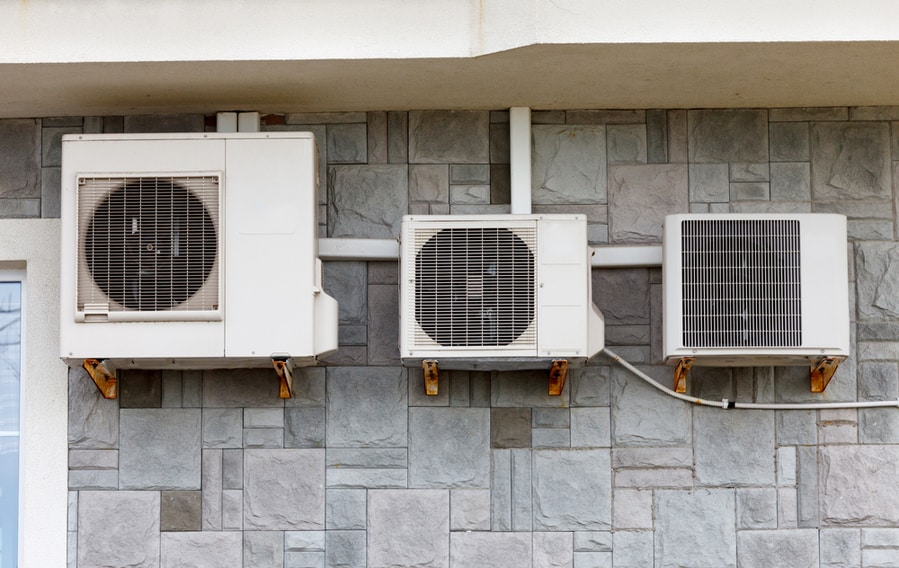
Additionally, the wrong air conditioner size can also be an issue. Getting a bigger unit does not mean the aircon device will perform efficiently.
On the contrary, large capacity units cool rooms too fast and turn off the cooling cycle before enough moisture is removed, leading to high humidity levels.
On the other hand, having a small AC unit for your home can also lead to dehumidification issues. This is because the appliance takes too long to cool the room, leading to excess moisture in the air.
Finding the Right Air Conditioner
Getting the right air conditioner size for your house is essential to improving the unit’s cooling and dehumidifying efficiency.
You can do this by calculating the BTU capacity for your house and finding a climate control device with a similar rating.
6. Thermostat Issues
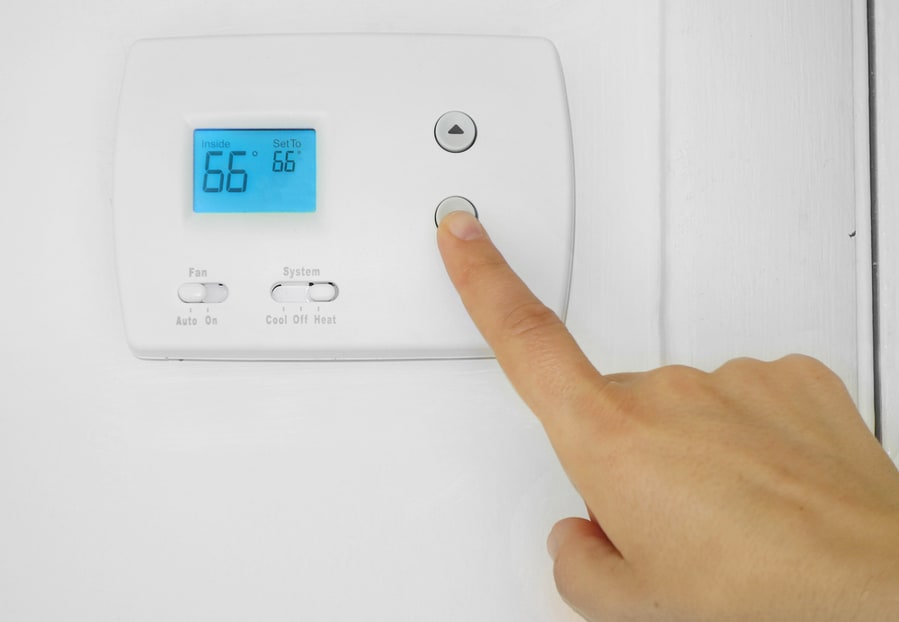
Incorrect thermostat settings can also contribute to the excess humidity around the house even though your air conditioning device is running.
The thermostat is responsible for controlling the AC. When the room reaches the desired temperature, the compressors turn off when the temperature rises.
If your thermostat is faulty or is set too high, it might turn off the cooling cycle too soon, and the unit will not have enough time to remove moisture from the air.
Likewise, if the thermostat is set too low, air will be cooled too fast without dehumidifying it.
Programming the Correct Thermostat Settings
Adjust the thermostat temperature setting until you get the right comfortable humidity level. If you have an issue with your thermostat settings, check your user manual or call customer care for the appropriate settings.
A faulty thermostat can cause your AC to overwork, increasing wear and power consumption. It would be best if you had an HVAC expert replace it.
7. Old AC Unit

Finally, old air conditioners tend to get less efficient near the end of their lifespan. If your unit is too old, it might have an issue with dehumidification.
Buying a New Air Conditioner
Unfortunately, if your AC is too old, the best option is to replace the unit.
However, there are a few factors to consider when getting a replacement. First, consult an air conditioner professional to help find an appropriate device.
Takeaway
Air conditioners are ideal for dehumidifying your house in the hot summer heat; however, rooms might be prone to excess humidity even though the air conditioner is running.
In most cases, the issues are caused by using the wrong AC mode, dirty air filters, high humidity outside, or frozen evaporator coils.
Likewise, an improperly sized air conditioner, thermostat issues, or an old device might also lead to dehumidification issues.
Frequently Asked Questions
How Do I Get Rid of Humidity in My Room With My AC?
The air conditioner has a dehumidification feature that can be activated by turning on the unit’s Cool Mode or Dry Mode.
What Causes the Evaporator Coils in My AC To Freeze?
The most common reasons for the frozen evaporator coils in your air conditioner include the following:
- Dirty air filters.
- Low refrigerant levels.
- Faulty thermostat.
- Clogged drain pipe.
- Dirty evaporator coils.
- Low fan speed.
- Defective fan motor.

